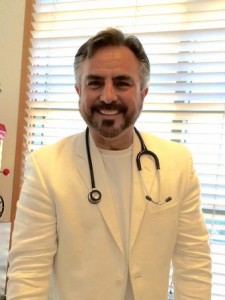By: Yesenia Noriega Garcia
February fast approached us this year and we cannot help but to think of it as the “love” month. You start noticing the stores turning into a sea of pinks, reds, and hearts everywhere you go. It’s almost as if it’s unavoidable, the stores start shifting in colors, people tend to become more per say nice and start showing appreciation to one another. Who wouldn’t want that right!? Well yes, we can all use some type of love and appreciation in our lives. It is the perfect month to learn about the risks for heart disease and how to stay “heart healthy” not only for yourself but for your loved ones as well.
Cardiovascular Disease (CVD) -including high blood pressure, stroke, and heart disease is the number one killer among both women and men. According to the American Heart Association statistical update the United States CVD costs are over $300 billion each year. (Includes medications, healthcare services, and loss productivity) Many of these CVD deaths could have been preventable if only people practiced healthier habits and healthier lifestyle choices.
Often times having a Cardiovascular disease prevents individuals to engage in family activities, affects performance at work, and disengages them one way or another. Ask yourself, “Do my loved ones matter?” If yes, then so should your heart! It’s never too late to start on a new healthier you. Where there is a will there is a way. Let us guide you into the path of a healthy heart and a better you. Let’s start one step at a time, learning the risk factors and preventable measures to live a quality life.
Here are a number of risk factors for CVD you can control: diet, tobacco use, obesity, physical activity, diabetes, high blood pressure, high blood cholesterol. Plan for prevention for better heart health, you’ll be surprised how these tips can become lifelong habits!
First thing, work with your health care team. Getting yearly checkups is highly advised, your medical doctor can test for risk factors for CVD that often go unnoticed. Choosing a healthy diet is a wonderful alternative that will help you avoid complications in the future. It helps if you limit the amount of sodium intake but you must also eat plenty of fresh fruits and vegetables. Maintaining a healthy weight can help you decrease your risk for CVD. Being overweight and or obese can increase your risk; get in check with your body mass index (BMI) to ensure you are at a healthy state. Exercising regularly helps maintain a low cholesterol level and healthy weight, so why not practice it? Physical activity is extremely important for your overall health, whether it is a 10 minute walk or a 1 mile run, it all helps.
Other preventable ways are to not smoke and to limit the amount of alcohol use. Smoking cigarettes greatly increases your risk for CVD, if you smoke consider quitting if you don’t then great for you. The downside of alcohol is that it increases your blood pressure which is also a risk factor for heart disease. Women should be limited to one drink per day and men two drinks per day if you decide to consume alcohol.
As you begin to incorporate small changes into your lifestyle it is important to not get overwhelmed. Bring a partner along, invite your coworkers for a walk during lunch hour and exchange healthy recipes. Although it may seem hard to adjust to and you may not follow all the tips precisely, do not get discouraged! Get a good night sleep, rest up and do what you did not finish tomorrow. Find things to do that you enjoy, that are fun and decrease your stress level. Remember that it is okay to reward yourself once in a while, keep the motivation flowing. After all, you are beginning a new healthier version of yourself, embrace it.
References:
- Go AS, Mozaffarian D, Roger VL, Benjamin EJ, Berry JD, Blaha MJ, et al. Heart disease and stroke statistics—2014 update: a report from the American Heart Association. Circulation. 2013 [Epub ahead of print].
- CDC.Vital Signs: avoidable deaths from heart disease, stroke, and hypertensive disease—United States, 2001–2010. MMWR. 2013;62(35);721–7.



